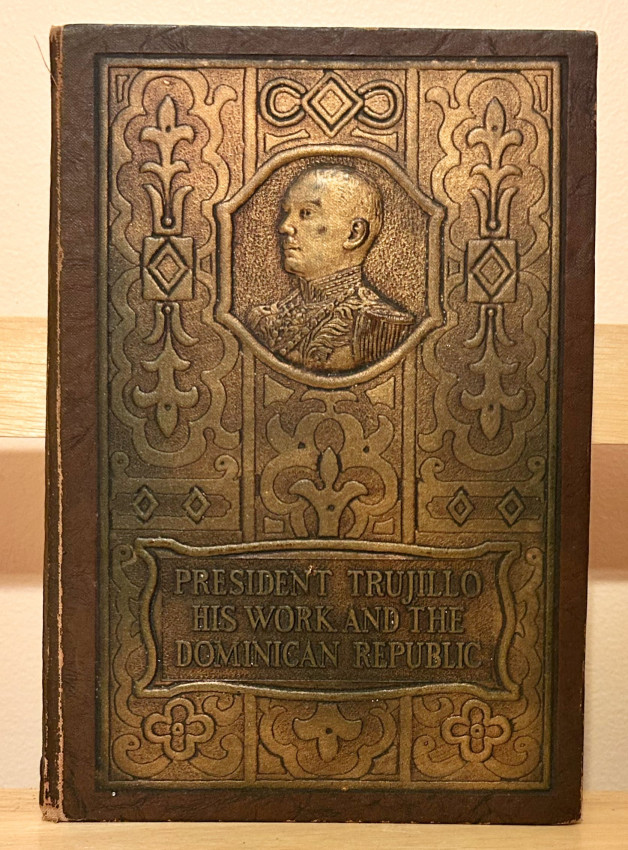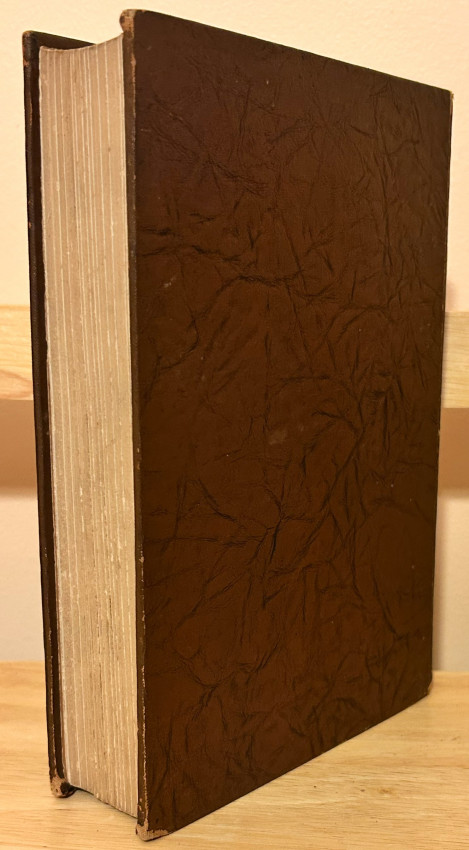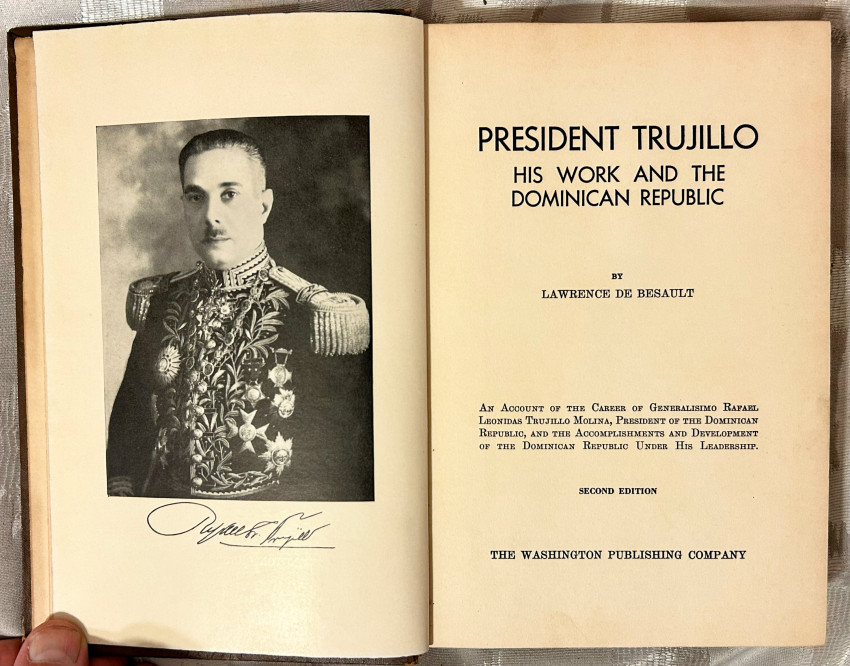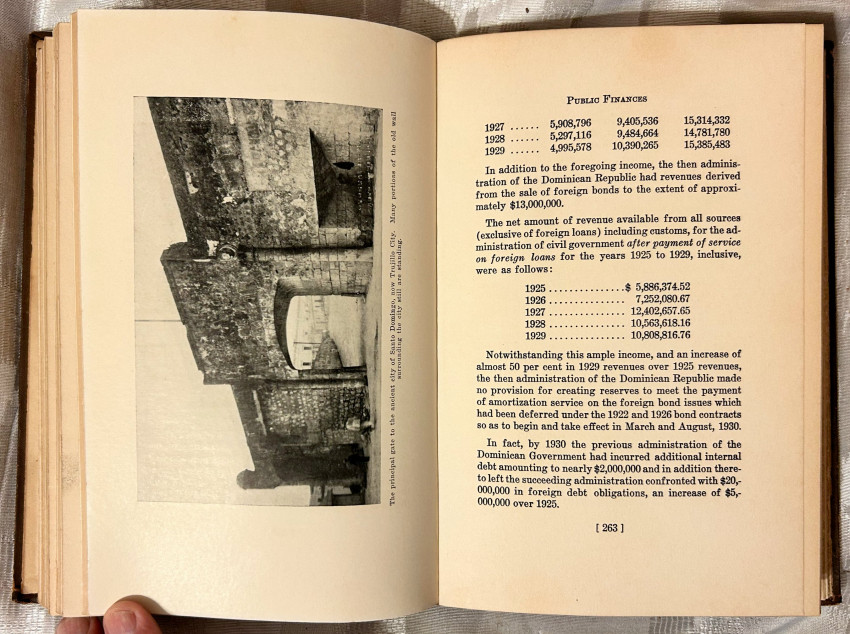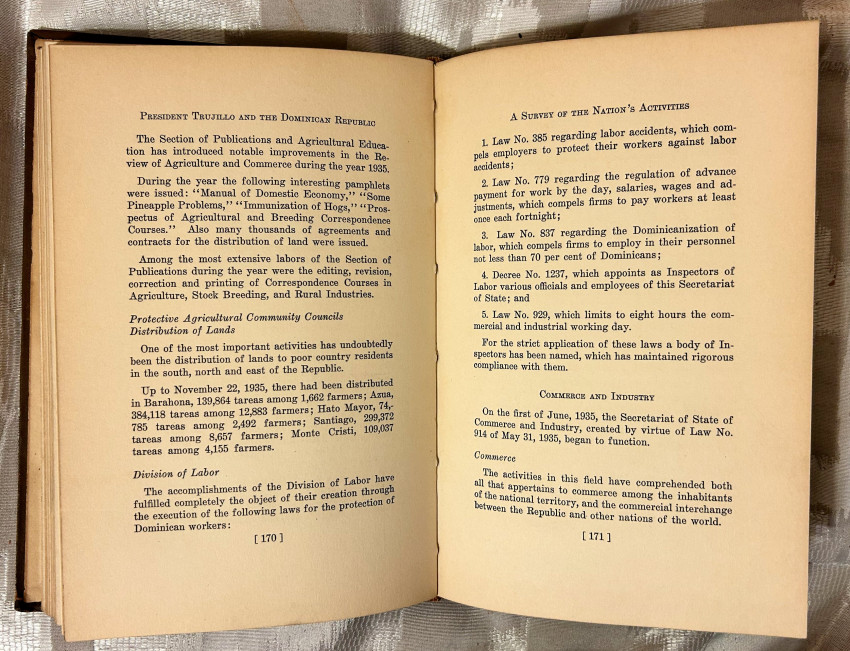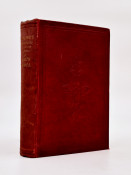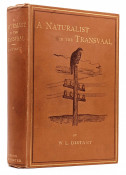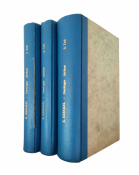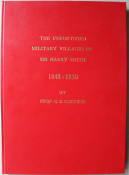De Basault (Lawrence)
410 pages. Hardback, second edition. Frontispiece. Leather cover, embossed front cover with decorations of Trujillo, book title and adornments. Spine lettering faded, fading to front cover. Other than visible wear along hinge, the cover remains in very good condition. Pages are clean and binding tight. Narrative text illustrated throughout with photographs. Very Good condition.
PRESIDENT TRUJILLO - HIS WORK AND THE DOMINICAN REPUBLIC
An account of the career of Generalisimo Rafael Leónidas Trujillo Modina, President of The Dominican Republic and the accomplishments and development of The Dominican Republic under his leadership
Rafael Trujillo's work in the Dominican Republic is a complex and controversial legacy, marked by both economic development and brutal repression during his dictatorship from 1930 to 1961. While his rule led to some improvements in infrastructure and the economy, these achievements were inseparable from a campaign of political persecution, human rights abuses, and violence.
Under Trujillo, the Dominican Republic paid off its foreign debt. He appropriated and monopolized all industries and commerce, which strengthened the economy. His absolute political control provided stability that encouraged foreign investment, particularly in the sugar, cocoa, and banana industries. He oversaw the development of national infrastructure, including the construction of roads, schools, and health facilities. He promoted urban development and founded the Universidad de Santo Domingo in 1940. The expansion of government services helped create a new middle class of professional workers.
Trujillo established a level of stability that appealed to some American interests during the Cold War. His anti-communist stance led successive U.S. administrations to support his regime in the 1930's and 40's.
In 1937, Trujillo ordered the massacre of between 15,000 and 20,000 Haitians and Dominicans of Haitian descent living near the border. His racist "Dominicanization" policies fueled anti-Haitian sentiment, and some victims were identified by their inability to pronounce the Spanish word perejil (parsley).
He established a brutal secret police force, the Military Intelligence Service (SIM), to gather intelligence and murder his enemies. The SIM was notorious for its use of torture at facilities like La Cuarenta. Trujillo's regime systematically persecuted and assassinated political opponents, including the Mirabal sisters in 1960. He cultivated a pervasive personality cult, styling himself "El Benefactor" and requiring public displays of support. He even changed the capital's name from Santo Domingo to Ciudad Trujillo.
Trujillo used his position to amass an immense personal fortune by seizing land and taking control of the country's businesses and factories. He exempted himself and his family from tax laws and exercised a stranglehold on the country's economic life.
Trujillo's assassination in 1961 was a turning point, but it was followed by a period of instability and political turmoil as the country transitioned toward democracy. The human rights abuses and state-sponsored terror of the "Era of Trujillo" have had a long-lasting impact on Dominican society.
The book was published in 1936, so covers just the first few years of Trujillo's reign.
--------------------
Ships from the US. Unless otherwise requested we use UPS Worldwide.
- Binding Condition: Very Good
- Overall Condition: Very Good
- Size: 225mm x 150mm

